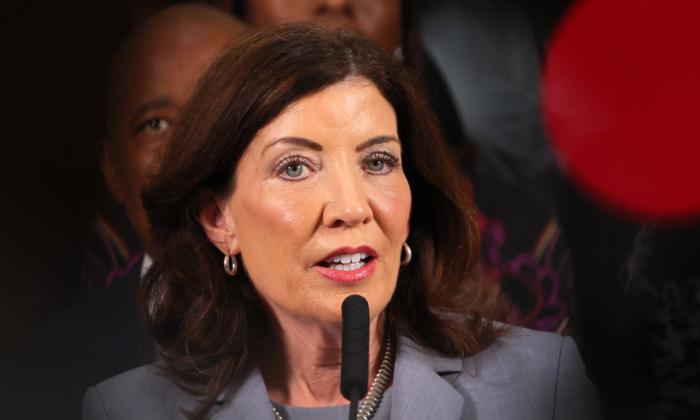The Department of the Treasury recently issued new guidance for price caps on Russian oil, in order to keep energy markets calm.
The announcement by Washington is intended to provide breathing room for energy traders and shipping companies, as it attempts to reassure the markets about its new round of sanctions.The Treasury announced, on Oct. 31, that said ships containing Russian oil before Dec. 5 and which unload at their destination by Jan. 19 will not be subject to the price cap imposed by Western governments.
However, sales of Russian oil shipments on or after Dec. 5 will be place under the price cap in order to have access to Western-owned insurance, financial, and shipping services, over which they have a monopoly.The Western allies plan to enforce the cap by denying maritime services for insurance, finance, brokering, and navigation for Russian oil shipments above the price cap.
Starting on Dec. 5, the United States and its allies will impose a price cap on providing maritime companies transporting shipments of Russian oil unless it is is sold below a fixed price, as part of sanctions over the Russian war in Ukraine.
A senior Treasury Department official told reporters that discussions regarding the price caps are based on Russian oil production costs and historical prices for oil from the country, reported Reuters.
Treasury officials are looking at the pre-2022 price for Russian oil at around $65 a barrel, reported The Wall Street Journal.Balancing Sanctions With the Marketplace
Since the start of the war in Ukraine, Russia has been selling oil at a discount of roughly $20 a barrel.Before the war Russian, Urals crude closely tracked the price of the international Brent crude benchmark, which is currently trading at around $94.36 a barrel.
However, the execution of the price cap has faced a delay, as the Biden administration wants to avoid creating uncertainty in oil markets before the midterm elections on Nov. 8, reported The Wall Street Journal.
Maritime and energy-related firms are already preparing for the December delivery of Russian oil shipments through its ports on the Baltic Sea, which can take 45–60 days to reach buyers in Asia.
The Biden administration came up with the strategy as a way to keep Russian oil supplies on the global market and avoid a contraction in supply, while punishing Moscow with an attack on its revenue from oil sales.
American officials proposed the price caps as compromise over the European Union sanctions plan for Russian oil, which would have banned insurance and financial services from interacting with Moscow, thereby driving up oil prices worldwide.
The price caps were supposed to be put into force mid-October, but a move by OPEC and its allies to cut oil production delayed the move, according to The Wall Street Journal.
Some oil analysts believe the the Russians will continue to sell oil if price cap levels are high enough, but many doubt it will agree to a price set by its rivals.
The Russians have already said that they will stop selling oil to any country or company that imposes price limits on its energy exports.
The Biden administration is convinced that Russia will not cut off access to its oil supply in retaliation due to the damage that it would cause to its long-term production capacity and existing agreements with buyers.






Friends Read Free